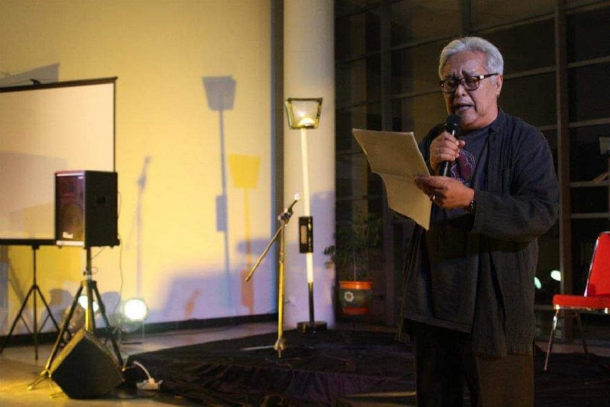Indonesian Catholics mourn “warrior of pluralism”
To many Indonesians, Agustinus Kurdi, 71, was just an actor who starred in numerous movies and television series.
May 17, 2020

By Konradus Epa
To many Indonesians, Agustinus Kurdi, 71, was just an actor who starred in numerous movies and television series.
However, for Catholics, he was more than an actor. He contributed to promoting inculturation in the Indonesian Church, particularly Javanese culture in the liturgy, which was in line with the spirit of Vatican II.
Now Javanese Catholics can sing some of his songs during church liturgy.
Despite being kept busy in the entertainment industry, Kurdi, who was born on Sept. 22, 1948, in Pekalongan, Central Java, devoted a lot of his time to church activities and to sharing his talents and knowledge with younger church members.
“He promoted inculturation by composing Javanese songs for the liturgy and sculptured Marian statues in the Javanese style,” said Fr Yustinus Sulistiadi, a former student of Kurdi.
Fr Sulistiadi met Kurdi when he was studying at the Jakarta Driyarkara School of Philosophy where Kurdi taught theatre class for seminarians. After his ordination, he often worked with him in cultural activities including plays, seminars, and discussions.
“We should learn from this Catholic man who did so much to transfer culture to Catholic youths,” the priest said, adding that Kurdi was raised in a Muslim family but at the age of 30 converted to Catholicism.
Until the end of his life, Kurdi was a parishioner at St Mark’s Church in Depok, West Java, where he also helped conduct inculturation programmes.
Jesuit Fr Francis Xavier Mudji Sutristo, a lecturer at the Jakarta Driyarkara School of Philosophy, also praised Kurdi. He said the actor gave colour to church liturgy including the tablo, an enactment of Jesus’ passion and death on Good Fridays.
“That’s what Vatican II encourages us to do. He taught seminarians how to use theatre to convey the Good News using local culture,” the priest said, adding that the theatre the actor started at the school is still running.
Kurdi also taught theatrical art at Catholic high schools in Jakarta.
“He emphasised interfaith theatre by involving all people from any religion. This was one of his contributions to the nation. He was a warrior of pluralism,” Fr Sutristo said.
Kurdi died on May 8 from a brain tumour in Jakarta and was buried at the Bengkel Theater during a special funeral for artists in Cipayung, East Jakarta.
“I believe death is not the end of everything. So, we offer him to God,” said Maria Advena Victoria, 34, Kurdi’s daughter.
Kurdi had become blind but still acted. His last movie, Terima Kasih Emak, Terima Kasih Abah (Thanks Mom, Thanks Dad), was scheduled to be released in cinemas in Jakarta on April 20 but the COVID-19 outbreak put a stop to that.
According to Fr Sulistiadi, Kurdi did the movie “because it promotes family values, unity, loyalty and love.”
Kurdi wanted to encourage people to build stronger families in the face of modern-day challenges such as consumerism and rising divorce rates.
Fr Sulitiadi celebrated a livestreamed requiem Mass for Kurdi from St Gregory the Great Church in Kutabumi, Tangerang, Banten, before his burial on May 9.
Kurdi started his acting career in 1970 by joining the acclaimed theater troupe Bengkel Teater, led by the late poet and actor Willibrordus Surendra Broto Rendra. He gained recognition for his roles in numerous movies including Putri Seorang Jendral (A General’s Daughter) and Gadis Penakluk (Conquering Girl).
Kurdi studied at the Indonesia Fine Art Academy in Yogyakarta and continued at the School of Art Theater Program at New York University from 1976 to 1978.
He starred in at least 17 movies and earned prestigious awards, including the Indonesian Movie Actors Lifetime Achievement Award and the Citra Cup for best actor.
He also won best actor awards at three Indonesian film festivals.--ucanews.com







Total Comments:0